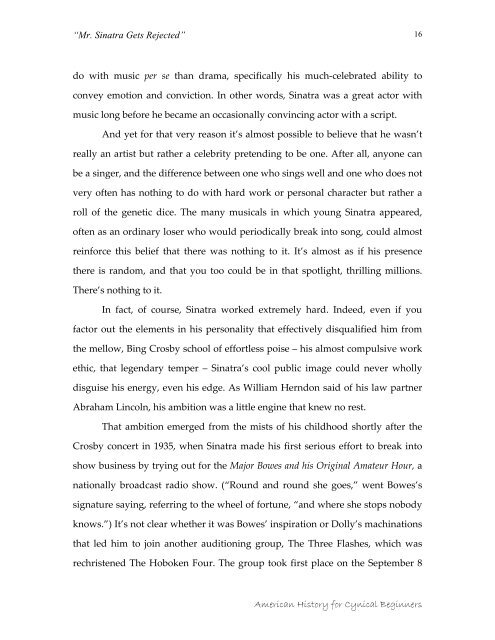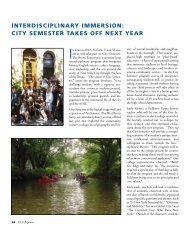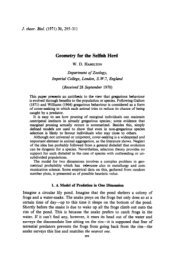Chapter 6 - Ethical Culture Fieldston School
Chapter 6 - Ethical Culture Fieldston School
Chapter 6 - Ethical Culture Fieldston School
Create successful ePaper yourself
Turn your PDF publications into a flip-book with our unique Google optimized e-Paper software.
“Mr. Sinatra Gets Rejected”<br />
do with music per se than drama, specifically his much‐celebrated ability to<br />
convey emotion and conviction. In other words, Sinatra was a great actor with<br />
music long before he became an occasionally convincing actor with a script.<br />
And yet for that very reason it’s almost possible to believe that he wasn’t<br />
really an artist but rather a celebrity pretending to be one. After all, anyone can<br />
be a singer, and the difference between one who sings well and one who does not<br />
very often has nothing to do with hard work or personal character but rather a<br />
roll of the genetic dice. The many musicals in which young Sinatra appeared,<br />
often as an ordinary loser who would periodically break into song, could almost<br />
reinforce this belief that there was nothing to it. It’s almost as if his presence<br />
there is random, and that you too could be in that spotlight, thrilling millions.<br />
There’s nothing to it.<br />
In fact, of course, Sinatra worked extremely hard. Indeed, even if you<br />
factor out the elements in his personality that effectively disqualified him from<br />
the mellow, Bing Crosby school of effortless poise – his almost compulsive work<br />
ethic, that legendary temper – Sinatra’s cool public image could never wholly<br />
disguise his energy, even his edge. As William Herndon said of his law partner<br />
Abraham Lincoln, his ambition was a little engine that knew no rest.<br />
That ambition emerged from the mists of his childhood shortly after the<br />
Crosby concert in 1935, when Sinatra made his first serious effort to break into<br />
show business by trying out for the Major Bowes and his Original Amateur Hour, a<br />
nationally broadcast radio show. (“Round and round she goes,” went Bowes’s<br />
signature saying, referring to the wheel of fortune, “and where she stops nobody<br />
knows.”) It’s not clear whether it was Bowes’ inspiration or Dolly’s machinations<br />
that led him to join another auditioning group, The Three Flashes, which was<br />
rechristened The Hoboken Four. The group took first place on the September 8<br />
American History for Cynical Beginners<br />
16
















